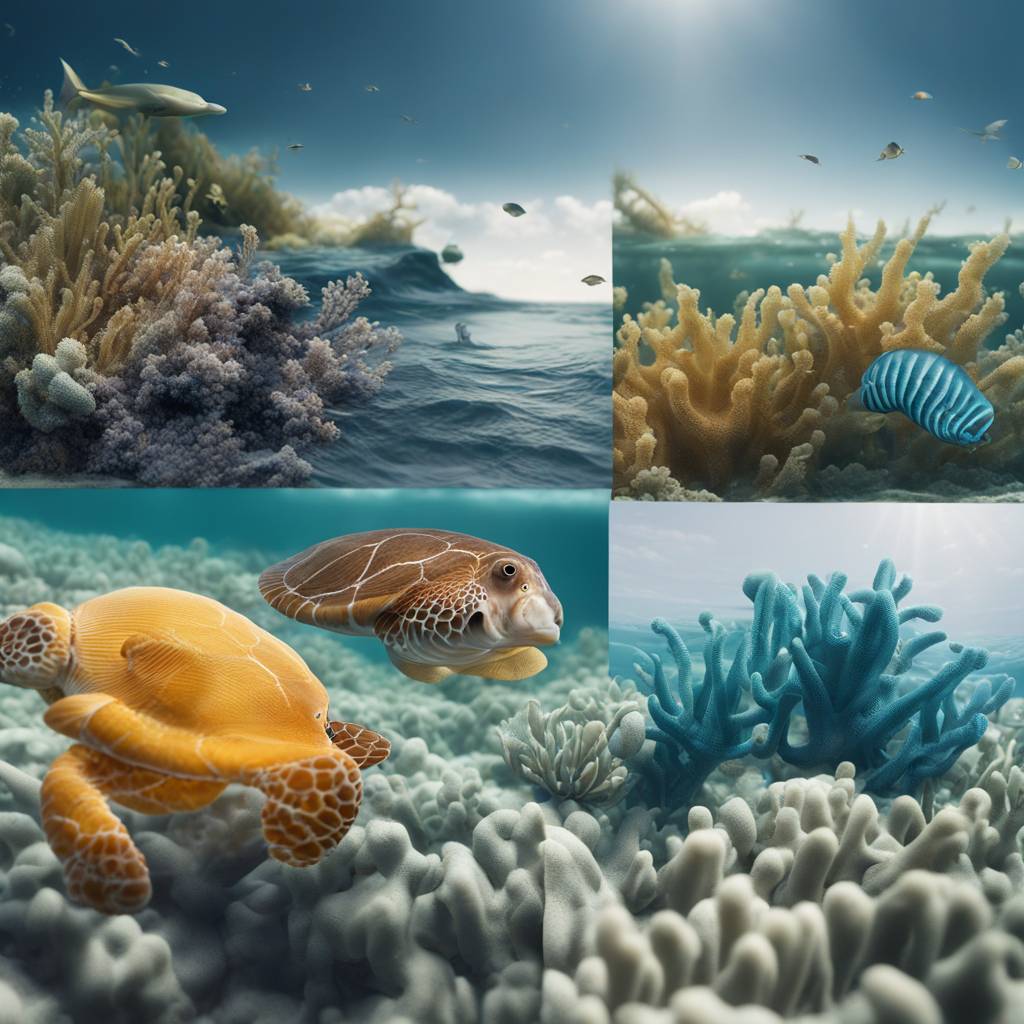Fish and invertebrate animals are being significantly affected by warmer and more acidic seawater, according to a study led by NIOZ marine biologist Katharina Alter and published in Nature Communications. Alter emphasizes the need to analyze and summarize the results of studies on climate change to understand the overall impact on marine life. Traditional methods of lumping together different species can mask contradictory effects, leading to an incomplete picture of the consequences of climate change.
The study by Alter and her colleagues reveals that climate change affects not only survival rates and metabolism but also other important biological responses such as physiology, reproduction, behavior, and physical development in fish and invertebrates. These impacts can lead to ecological shifts that alter marine ecosystem structures. The researchers developed a new method that takes into account seemingly contradictory results and determines the combined impact of climate change on animals’ fitness.
The research found that the increased levels of carbon dioxide in the air have been causing warmer and more acidic seawater, with unknown future trends. Alter and her team calculated the consequences of three projected scenarios of carbon dioxide increase – extreme increase, moderate increase, and mitigated increase due to potential measures. The results show that if current trends of ocean warming and acidification continue, up to 100% of biological processes in fish and invertebrate species will be affected.
Measures to mitigate atmospheric carbon dioxide levels can help reduce the changes in biological processes in marine animals. In a low carbon dioxide scenario, 50% of invertebrate responses and 30% of fish responses will be affected. The study highlights the importance of understanding the hidden impacts of climate change on marine species and the need for proactive measures to address these challenges. Alter’s new approach allows for a more comprehensive assessment of the effects of warming and acidifying seawater on marine life.
The study was conducted in collaboration with colleagues from various research institutions worldwide, including the US, France, Argentina, Italy, and Chile. By incorporating a wider range of measured responses and considering deviations from the current state, the new method can detect previously hidden impacts of climate change on fish and invertebrate species. This approach provides a clearer understanding of the complex interactions between marine ecosystems and environmental changes, paving the way for more effective conservation strategies and adaptation measures in the face of climate change.






